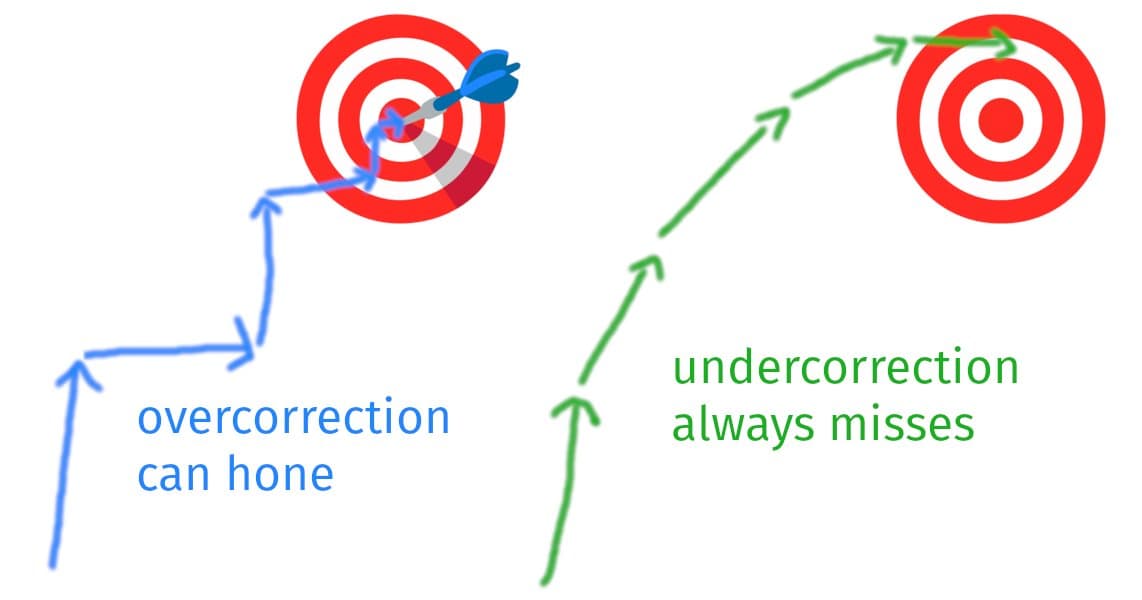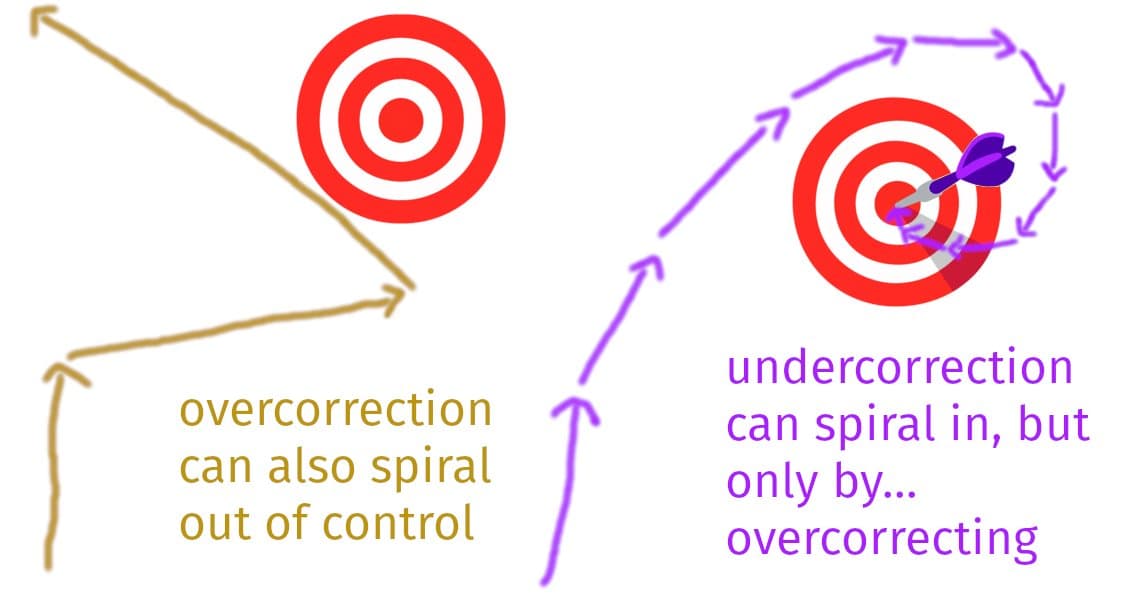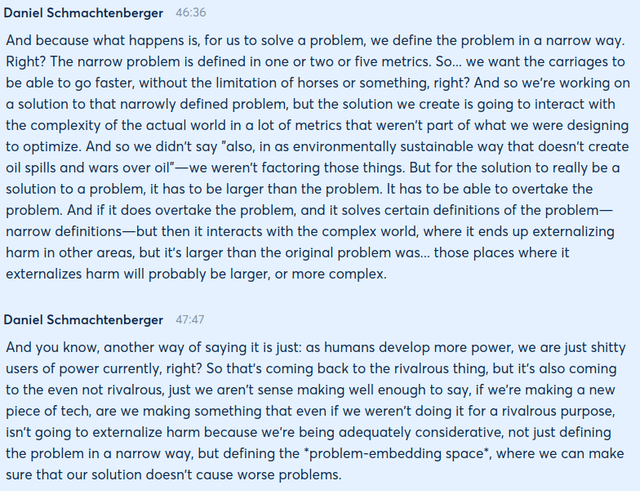🧵 View Thread
🧵 Thread (6 tweets)

if you aren't overcorrecting, you're undercorrecting and only a series of overcorrections can actually get you to where you're going chronic undercorrections always miss https://t.co/wGoTnj9uGG https://t.co/cUMYBcRVAy


ofc, overcorrection can go off the rails if the new overcorrection is WORSE than the old one and undercorrection can eventually converge, but in the process, it has to "overcorrect" on a different level of abstraction, by passing the target altogether! https://t.co/k3X8m3c9tp


all solutions create new problems some solutions create WORSE problems some solutions end up creating *pareto* worse problems, ie situations that are not *in any way* better than the original situation https://t.co/DtGRtYDX5P

school trains this out of people by treating mistakes as something to be avoided rather than as a natural part of the learning process there are other approaches to learning! https://t.co/7csPTqIqEQ

reflecting on this a little more, the point is that insofar as you make an error, your future moves may need to cancel out the error in addition to adding whatever original progress would have been needed so you need to make errors in multiple directions, in some sense


Schmactenberger w @dthorson on Emerge re externalities. I keep coming back to this. > The other thing is, intrinsic to how we do problem solving is that, for the most part, humanity solves problems in ways that make worse problems. Listen: https://t.co/J1mxGW9RTM https://t.co/QYM8HMcsoN
